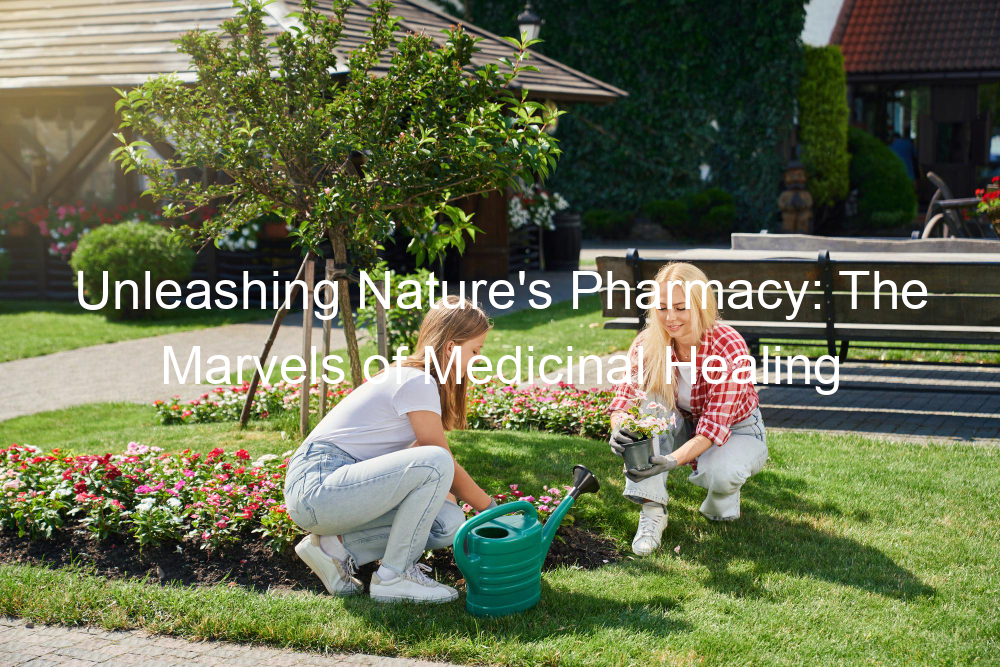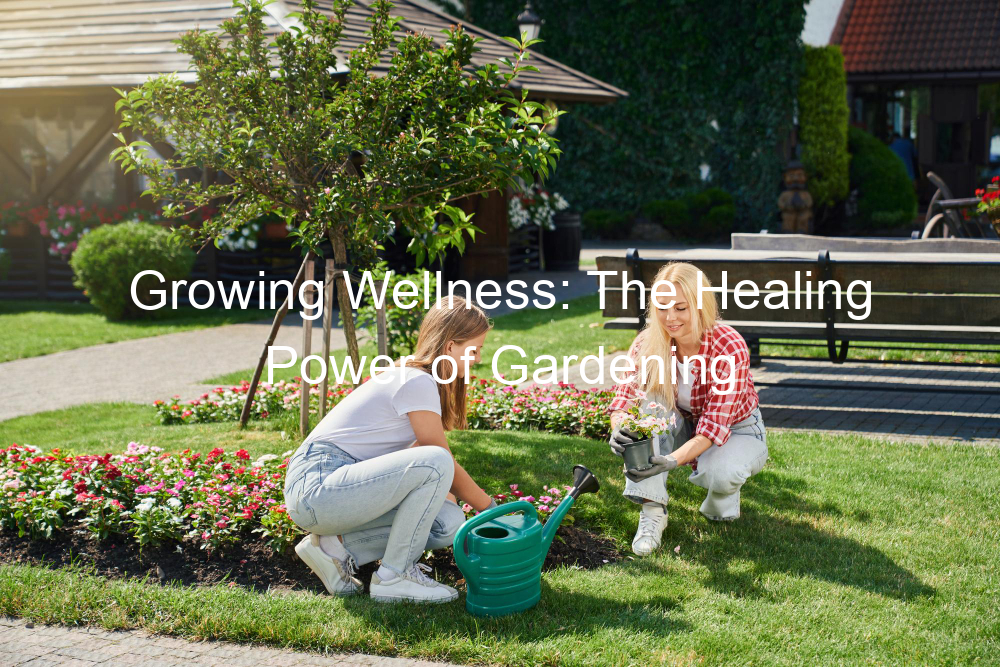Introduction to Nature’s Pharmacy
For centuries, humans have turned to nature for healing and wellness. From the soothing scent of lavender to the potent power of ginseng, nature’s pharmacy is rich and diverse. This post will explore the incredible healing power of nature, provide an overview of natural remedies, and discuss the rise of herbal medicine.
-
- The Healing Power of Nature
Nature has an incredible ability to heal and restore. The air we breathe, the water we drink, and the food we eat all come from nature. But nature’s healing power goes beyond these basic necessities. Plants, herbs, and other natural substances have been used for thousands of years to treat various ailments. For example, willow bark, a natural source of aspirin, has been used for centuries to relieve pain and reduce fever.
-
- Overview of Natural Remedies
Natural remedies are treatments that use ingredients found in nature. They include herbs, roots, flowers, fruits, and seeds. These remedies can be used in various forms, such as teas, oils, tinctures, or capsules. For instance, chamomile tea is known for its calming effects and is often used to help with sleep. Peppermint oil, on the other hand, can help relieve headaches when applied topically.
-
- The Rise of Herbal Medicine
Herbal medicine, also known as botanical medicine, involves using plants and their extracts for therapeutic purposes. Over the past few decades, there has been a significant rise in the use of herbal medicine. According to the World Health Organization, about 80% of the world’s population now uses herbal medicine for some aspect of primary health care. This rise can be attributed to growing awareness about the potential side effects of synthetic drugs and a desire to return to natural, holistic methods of healing.
In the following sections, we will delve deeper into the marvels of medicinal healing, the role of herbal medicine in natural healing, and a practical approach to natural remedies. Stay tuned to learn more about embracing the healing power of nature.
The Marvels of Medicinal Healing
Medicinal healing is a fascinating subject, full of wonder and mystery. It’s like a treasure chest filled with nature’s best-kept secrets.
Understanding Natural Healing Remedies
Natural healing remedies are a crucial part of medicinal healing. They are nature’s gift to us, helping us heal and maintain our health in a gentle, non-invasive way. Let’s delve deeper into this topic.
-
- Definition of natural remedies
Natural remedies, also known as home remedies or folk remedies, are treatments made from natural ingredients like plants, herbs, fruits, and vegetables. They are used to treat or prevent various health conditions. These remedies have been used for thousands of years and are often passed down through generations.
-
- How natural remedies work
Natural remedies work by harnessing the healing properties of natural ingredients. A plant might contain a certain compound that has anti-inflammatory, antibacterial, or antiviral properties. When we use these plants as remedies, we are essentially using these beneficial compounds to help our bodies fight off illness or recover from injury.
-
- Examples of common natural remedies
There are countless natural remedies out there, but here are a few common ones:
| Remedy | Uses |
|---|---|
| Ginger | Used for nausea, digestion problems, and inflammation |
| Honey | Used for coughs, wounds, and skin problems |
| Garlic | Used for heart health, immune support, and infection prevention |
Understanding natural remedies is the first step towards harnessing the marvels of medicinal healing. Nature has provided us with a vast pharmacy. It’s up to us to learn how to use it wisely.
Medicinal Plants and Their Healing Power
Plants have been the basis of medical treatments throughout much of human history, and such traditional medicine is still widely practiced today. Let’s explore the fascinating world of medicinal plants and their healing power.
-
- Introduction to medicinal plants
Medicinal plants, also known as medicinal herbs, have been discovered and used in traditional medicine practices since prehistoric times. They produce thousands of bioactive compounds that serve as plant defense mechanisms against predators such as insects, fungi, and herbivorous mammals. Today, they are of great medicinal and economic importance for populations around the world.
-
- Health benefits of nature’s medicine
Medicinal plants offer a myriad of health benefits. They are often used in the treatment and prevention of diseases and health conditions such as heart disease, asthma, epilepsy, and cancer. They can also be used to enhance immunity, promote mental health, and ensure a balanced, healthy diet. Here’s a simple table showcasing some common medicinal plants and their health benefits:
| Medicinal Plant | Health Benefit |
|---|---|
| Ginger | Helps with digestion and reduces inflammation |
| Garlic | Boosts immune system and has antibacterial properties |
| Peppermint | Relieves nausea and headaches |
-
- Case studies of medicinal plants
There are countless examples of medicinal plants making a significant impact on people’s health. One such case is the use of willow bark, which has been used for centuries to relieve pain and reduce inflammation. It was later discovered that the bark contains salicin, a substance that chemically resembles the active ingredient in aspirin. Another case is the use of foxglove plant, which was used in traditional medicine to treat heart conditions. Scientists later extracted the active compound, digitoxin, and it became a precursor for the development of a range of heart medications.
The Role of Herbal Medicine in Natural Healing
Herbal medicine plays a significant role in natural healing. This ancient practice uses plants and their extracts to treat various health conditions. Let’s delve into a deeper understanding of herbal medicine.
Understanding Herbal Medicine
Herbal medicine, also known as botanical medicine or phytomedicine, refers to using a plant’s seeds, berries, roots, leaves, bark, or flowers for medicinal purposes. It is considered as one of the oldest forms of healthcare known to mankind. Now, let’s break down the concept of herbal medicine into simpler terms.
-
- Definition of herbal medicine
It is a type of alternative treatment method that involves the use of plants or plant extracts to promote health, prevent diseases, and treat illnesses. It’s a natural approach to healing that has been used for thousands of years across different cultures.
-
- How herbal medicine works
Herbal medicine works by harnessing the healing properties of plants. These properties come from the plant’s chemicals, which can have a powerful effect on the body. For instance, some herbs can boost the immune system, others can improve mental health, and some can even help fight off diseases. The way herbal medicine works can vary greatly depending on the herb and the condition it’s being used to treat.
-
- Examples of common herbal medicines
There are countless herbs used in herbal medicine, each with its own healing properties. Some common examples include:
| Herb | Common Uses |
|---|---|
| Ginger | Used for nausea, motion sickness, and digestion. |
| Echinacea | Used to boost the immune system and fight infections. |
| St. John’s Wort | Used for depression, anxiety, and sleep disorders. |
This is a fascinating and complex field, with a rich history and a wide range of applications. It’s a natural, holistic approach to health and wellness that can offer many benefits when used correctly.
Herbal Healing: A Closer Look
Herbal healing, a practice that has been around for thousands of years, is still a vital part of our healthcare today. Let’s take a closer look at this natural approach to wellness.
-
- Key takeaways from herbal healing
Herbal healing is a holistic approach to health, focusing on the body as a whole rather than just treating symptoms. It emphasizes prevention and uses natural remedies, often with fewer side effects than conventional medicine. Herbal healing can be a cost-effective alternative, especially for chronic conditions. Lastly, it encourages a healthier lifestyle, including a balanced diet and regular exercise.
-
- Case studies of herbal healing
There are numerous case studies that demonstrate the effectiveness of herbal healing. For instance, a study published in the Journal of Ethnopharmacology found that the herb Echinacea significantly reduced the severity and duration of common cold symptoms. Another study in the American Journal of Chinese Medicine showed that the herb Ginkgo Biloba improved cognitive function in patients with Alzheimer’s disease.
-
- Health benefits of herbal healing
Herbal healing offers a wide range of health benefits. It can boost the immune system, improve digestion, reduce inflammation, and promote mental health. Certain herbs like Turmeric and Ginger have anti-inflammatory properties, while others like St. John’s Wort are used to treat depression. Herbal healing can also help manage chronic conditions like diabetes, heart disease, and arthritis.
As we delve deeper into the world of herbal healing, it becomes clear that this ancient practice offers a wealth of benefits for our health and well-being. It’s a natural, holistic approach that treats the body as a whole, using the healing power of plants to promote wellness and prevent disease.
It’s essential to consult with a healthcare professional before starting any new treatment, including herbal remedies. While herbal healing can offer many benefits, it’s vital to use these remedies safely and responsibly.
Natural Remedies: A Practical Approach
When it comes to health and wellness, natural remedies have been a trusted source of healing for centuries. These remedies, derived from nature, offer a practical approach to treating various ailments and enhancing overall health.
How to Use Natural Remedies
Using natural remedies is not as complicated as it may seem. Here’s a step-by-step guide on how to incorporate these remedies into your daily routine.
-
- Practical Guide to Using Natural Remedies
Firstly, identify the health issue you want to address. Then, research the most effective natural remedies for that specific issue. For instance, ginger can be used to alleviate nausea, while lavender is known for its calming properties. Once you’ve chosen your remedy, follow the recommended usage instructions. This could involve brewing a herbal tea, applying a topical treatment, or taking a supplement.
-
- Precautions When Using Natural Remedies
While natural remedies can be beneficial, it’s essential to use them responsibly. Always start with small doses to see how your body reacts. If you’re pregnant, nursing, or have a chronic health condition, consult with a healthcare professional before starting any new treatment.
-
- Case Studies of Effective Natural Remedies
There are numerous case studies that highlight the effectiveness of natural remedies. For example, a study conducted by the University of Maryland Medical Center found that chamomile tea significantly reduced symptoms of generalized anxiety disorder. Another study published in the Journal of Ethnopharmacology reported that peppermint oil effectively alleviated symptoms of irritable bowel syndrome.
By understanding how to use natural remedies, you can harness the healing power of nature and take a proactive approach to your health and wellness.
Natural Health Solutions: A Comprehensive Guide
Let’s explore the world of natural health solutions. These are methods and practices that use nature’s gifts to promote health and wellness. They are simple, effective, and can be used by anyone, anywhere.
-
- Understanding natural health solutions
Natural health solutions are all about harnessing the power of nature for our wellbeing. They can include things like eating a balanced diet full of fruits and vegetables, getting regular exercise, using herbal medicines, and practicing mindfulness and relaxation techniques. These solutions work with our bodies to promote health and prevent disease, rather than just treating symptoms.
-
- How to implement natural health solutions
Implementing natural health solutions is easier than you might think. It starts with making small changes to your daily routine. This could be something as simple as taking a walk during your lunch break, adding more vegetables to your meals, or taking a few minutes each day to practice deep breathing. Over time, these small changes can add up to big improvements in your health.
-
- Examples of natural health solutions
There are countless examples of natural health solutions. Here are a few:
| Natural Health Solution | Description |
|---|---|
| Eating a balanced diet | This means eating a variety of foods from all the food groups to get the nutrients your body needs. |
| Getting regular exercise | This can include anything from walking and cycling to yoga and weightlifting. The key is to find something you enjoy and make it a regular part of your routine. |
| Using herbal medicines | These are medicines made from plants. They can be used to treat a wide range of conditions, from colds and flu to chronic diseases like diabetes and heart disease. |
| Practicing mindfulness and relaxation techniques | This can include things like meditation, deep breathing, and yoga. These techniques can help reduce stress and improve mental health. |
Conclusion: Embracing the Healing Power of Nature
As we conclude our exploration of nature’s pharmacy, it’s clear that the healing power of nature is not only profound but also holds immense potential for the future of medicine. Let’s recap our journey and look forward to what lies ahead.
-
The Future of Natural Medicine
With the increasing awareness and acceptance of natural remedies, the future of natural medicine looks promising. As more research is conducted, we can expect to see a rise in the use of herbal medicines and natural remedies. These treatments, which have been used for centuries, are likely to become even more integrated into mainstream healthcare. The future holds a vision of a world where healing is not just about treating symptoms but about nurturing the whole person – body, mind, and spirit.
-
Key Takeaways from the Article
Key Points Details Nature’s Pharmacy Nature provides a vast array of medicinal plants and herbs that can be used for healing. Role of Herbal Medicine Herbal medicine plays a significant role in natural healing, offering a holistic approach to health and wellbeing. Natural Remedies Natural remedies are not only effective but also offer fewer side effects than conventional medicines. -
Final Thoughts on the Marvels of Medicinal Healing
The marvels of medicinal healing are truly astounding. From the simplest of herbs to the most complex of plant compounds, nature offers a treasure trove of healing possibilities. As we continue to learn and grow in our understanding, we can only marvel at the wisdom and bounty that nature provides. As the famous naturalist John Muir once said, “In every walk with nature, one receives far more than he seeks.” Let’s continue to seek, learn, and embrace the healing power of nature.






